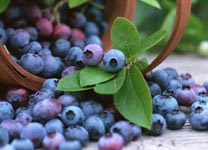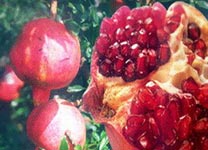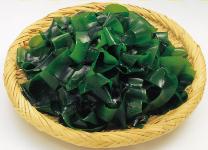| Home / Health / Photo | Tools: Save | Print | E-mail | Most Read |
| Forget Much-touted Superfoods |
| Adjust font size: |
Blueberries began the superfood trend. The hype continued with pomegranates, acai berries and seaweed. Now a long list of expensive and exotic foods has been credited with health-enhancing and memory-boosting qualities. With each announcement, sales have leapt, superfood cookbooks have multiplied and supermarkets have rushed to meet demand, offering a year-round supply of items once available in only the most hardcore of health food shops. But the reputation of superfoods is under attack. Experts say people would do as well to eat an orange or an apple as expensive foods that may be dense in "micronutrients"-tiny amounts of essential vitamins and minerals, for instance-but which add little to well-being. Jeremy Spencer, of Reading University, will launch a major debate on the growth of superfoods at London's Science Museum this week. He believes some claims about specific health benefits are untenable. "Not only is it completely misleading to break a food down into its component parts and study those one by one, but it is impossible to predict the reactions of individual metabolisms to specific foods," Spencer said. "Apart from the fact that the effect of the whole food may be more, or quite different, from the sum of its parts, it is impossible to say each person will have the same physiological result." He added: "People don't eat nutrients, they eat foods. And foods can behave very differently to the nutrients they contain and they can have a very different effect in someone's body than they have when examined in a test tube." Other leading diet experts agree. "The term 'superfoods' is at best meaningless and at worst harmful," said Catherine Collins, chief dietician at St George's Hospital in London. "There are so many wrong ideas about superfoods that I don't know where best to begin to dismantle the whole concept." Just because certain foods are bursting with a particular vitamin or nutrient does not mean they will be especially good for you, Collins said. "It might seem that eating foods rich in nutrients is just common sense, but the truth is that our bodies have a requirement for sufficient nutrients," she added. Not only is there no scientific definition of a superfood, but the concept itself could be harmful. "Nominating some foods as nutritional talismans gives the impression that ordinary, affordable and everyday foods are somehow deficient," she said. "A family would be better off buying regular and larger quantities of fresh fruit and vegetables from their local market." Michael Pollan, author of The Omnivore's Dilemma: A Natural History of Four Meals, agreed. "If you're concerned about your health, then you should probably avoid food products that make health claims," he said. "Why? Because the whole ideology is misleading." Most nutritional science, said Pollan, involves studying one nutrient at a time. "The problem with nutrient-by-nutrient science is that it takes the nutrient out of the context of food, the food out of the context of diet, and the diet out of the context of lifestyle," he said. The answer, said Collins, is to eat as balanced, varied. "People should not look for individual superfoods, but try to eat a 'super diet'," she said. "A Mediterranean diet, with its balance of food groups, is very close to the perfect diet. It is the only diet which has been the subject of prolonged and serious scientific investigation." Health myths exploded
Berries Claim: The superfood of the century. Packed with essential nutrients, berries have been labeled as the best food to help brain development, higher IQ, energy and boost immunity against infection. Reality: There is no published evidence supporting the role of berries in IQ. They do contain folic acid, though this appears across a wide range of plant-based foods.
Pomegranate juice Claim: Pomegranates contain plant anti-oxidant called polyphenols, a major polyphenol antioxidant being ellagic acid, a supposed anti-carcinogen. Pomegranates are widely claimed to have eight times the anti-oxidant potential of tea. Reality: Consuming a modest 180ml serving of pomegranate juice leads to an increase in blood anti-oxidant levels for one hour, but it is rapidly removed from the blood.
Seaweed Claim: A so-called nutrient powerhouse that stimulates the immune system, boosts brain power and guards against dermatitis, obesity, heavy metal poisoning, depression, congestion and anemia. Reality: The nutrients in seaweeds are found in all green vegetables. In addition, seaweed produces natural toxins called microcystins that can cause liver damage in humans and are thought to be potentially carcinogenic. (China Daily via The Guardian May 17, 2007) |
| Tools: Save | Print | E-mail | Most Read |
 |
| Related Stories |
|


